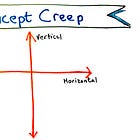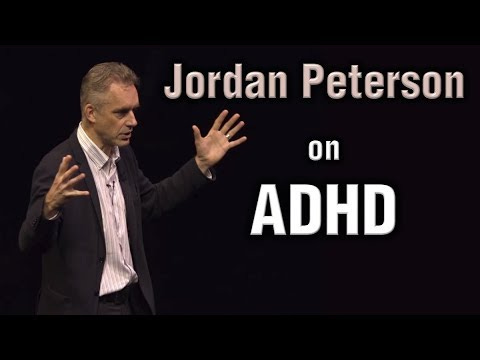Frontiers Friday #143. ADHD (The Flipside: Part III) ⭕️
The hidden side of ADHD.
"What hurts you, blesses you."
- Rumi
Everything has a flip side.
Today we return to Part III on the topic of ADHD, and look at the other side of the coin.
In case you missed the previous installments on ADHD, see
And here's the big picture of where we are going in the Frontiers Friday newsletters:
Frontiers Friday #138. Maps of Knowledge 🗺️ ⭕️
If someone needs directions, don't give them a globe. It'll merely waste their time. But if someone needs to understand the way things are, don't give them a map. They don't need directions, they need to see the big picture. ~ Seth Godin. I want to provide you some directions on how you can develop as a psychotherapist.
Frontiers Friday #143 Five Recommendations on the Flipside of ADHD (Part III)
Entrepreneurship and attention deficit/hyperactivity disorder: a large-scale study involving the clinical condition of ADHD
It is common for clients that I work with who are high performing entrepreneurs, to need help in managing their scattered minds and getting organised.
So when I saw this study, it peaked my interest.
Question: What is the link between Entrepreneurial intention and ADHD?
Key Grafs:
- Based on a cross-section study of more than 9000 individuals, the researchers found a positive connection between clinical ADHD and entrepreneurial intentions and action.
- This points at a potential self-selection inclination towards starting their own ventures.
- But this does not suggestion a link with entrepreneurial performance.ADHD symptoms, entrepreneurial passion, and entrepreneurial performance
Based on the study above, this particular research might help to clarify further about entrepreneurial performance for people with (sub-clinical) ADHD.
I’m not familiar with the statistic methods employed in this study, but the research question at hand is interesting:
Question: Do people with ADHD perform well in entrepreneurship?
Key Grafs:
- Three domains of entrepreneurial performance: i. Passion for developing, ii. Passion for founding, and iii. Passion for inventing.
- ADHD symptoms alone is not a condition for entrepreneurial performance.
- Entrepreneurs who are highly and thereby ambidextrously passionate for growing their businesses (ie., domain i) and for founding activities (i.e., domain ii) while lacking intense positive feelings for coming up with new ideas (i.e., domain iii) can benefit from ADHD.
- Successful ADHD-type entrepreneurs are those that combine passion for developing and founding but lack passion for inventing.
- Passion for only one entrepreneurship domain may bear the risk of producing response patterns that are obsessive or misdirected, especially for entrepreneurs with ADHD symptoms.
- Interestingly, experiencing high levels of passion in all three entrepreneurial domains equally interferes with entrepreneurial performance.
- This might be due to a cognitive overload and attentional conflicts.Scope of Semantic Activation and Innovative Thinking in College Students with ADHD
Given the studies above, this begs the question about the relationship between ADHD and creative thinking.
Question: What about the links of ADHD and innovative thought with young adults?
Key Graf:
- Compared to non-ADHD peers in a college student sample, students with ADHD scored higher in originality, novelty, and flexibility.Creativity in ADHD: Goal-Directed Motivation and Domain Specificity
Finally, lets look at a more recent study.
Question: what is the relationship between real-work creative achievements and ADHD?
Key Grafs:
- Compared to the control group, adults with ADHD reported more real-world creative achievements,
- Generated more original ideas in the presence of a bonus (but not in the absence of a competition), and
- Rated themselves as more creative in specific creative domains.⏸️ Words Worth Contemplating:
But the shadow has been serving you!
What hurts you, blesses you.
Darkness is your candle.
Your boundaries are your quest.
~ from Enough Words? by Rumi (The Essential Rumi, p.20)
Reflection
Creative constraints:
How do you use your constraints to your advantage?
How can we harness the flipsides with our clients?
See Related:
Terrible Gifts in Therapy
Symptoms are Impossible to Ignore…Because They are Terrible Gifts
Warm Welcome to New Folks on Frontiers of Psychotherapist Development (FPD)
If you are new here, I just want to say a big hello to you and would love to hear from you. Tell me a bit about you and the challenges you face in your development.
Click here to see more details and the archive listed by topics: Frontiers of Psychotherapist Development and Frontiers Friday.
Daryl Chow Ph.D. is the author of The First Kiss, co-author of Better Results, and The Write to Recovery, Creating Impact, and the new book The Field Guide to Better Results .






